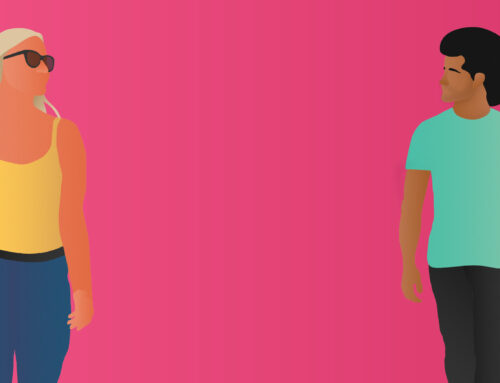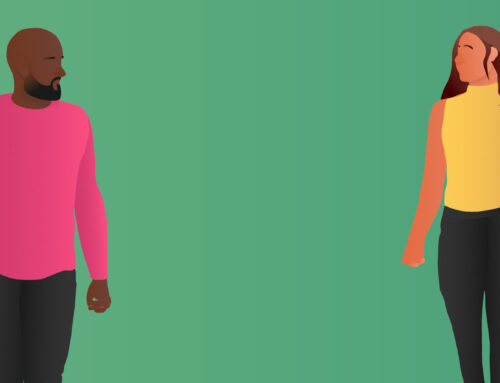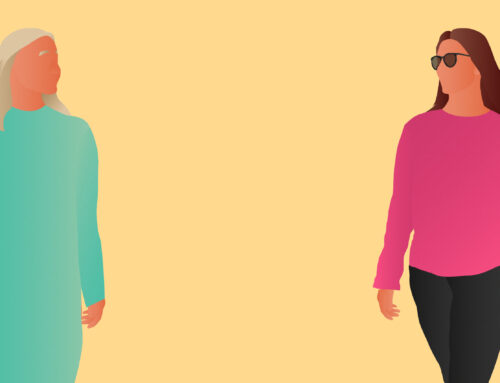What is a Court IDVA and how do they support victims of crime?
Overview
Did you know that NIDAS have specialist Court Independent Domestic Abuse Advisors (Court IDVA’s) who can support you during your court proceedings?
Our Court IDVA’s ensure that when it comes time to attend court, you won’t be alone, you’ll have someone advocating for your individual needs, and someone to help explain the various stages of the criminal justice system to you, ensuring you know what will happen and when.
Court IDVA’s provide a vital role in supporting those who’ve experienced crime and we’ve detailed below exactly what you can expect from our Court IDVA’s here at NIDAS.
What is a Court IDVA?
Court IDVAs play a vital role in the UK’s response to domestic abuse. They’re specially trained professionals who provide support to victims of domestic abuse who are going through the criminal justice system.
Attending court can be an immensely stressful time and the aim of our Court IDVA’s is to make the justice system more accessible and less intimidating, as well as ensuring your safety and well-being throughout the legal proceedings.
What can I expect from my Court IDVA?
When contacting NIDAS for support, you will be given a dedicated Court IDVA when your court date comes through. You can expect your Court IDVA to:
- Explain court procedures: The criminal justice system and legal jargon can be confusing. Your Court IDVA will break down what will happen in clear, accessible language and answer any questions you have about attending court.
- Provide emotional support: Court cases can be extremely stressful. Court IDVAs offer consistent emotional support before, during, and after hearings.
- Provide practical support: Court IDVA’s can support you with practical needs, by working with other specialist agencies who arrange things such as childcare during hearings, legal aid, and other support services.
- Support with safety planning: Your Court IDVA will help develop safety plans with other specialist agencies tailored to your unique circumstances. This includes ensuring safe travel to and from court and advocating for special measures like separate entrances, screens in courtrooms, and/or video link appearances.
- Liaise with court professionals: Court IDVAs act as a bridge between victims and other key court figures such as solicitors, police, prosecutors, and judges. This helps ensure that your voice is heard and your individual needs are considered.
As well as the above, you and your Court IDVA will be in constant contact throughout the court proceedings, and they will be able to guide you so you feel and know you’re supported at each stage.
Other key support services and what they do
As well as the Court IDVA, you might also be able to get support from other key services including:
Norfolk Police – Victim & Witness Care Officer
They will:
- Provide updates to victims on the progress of the case, once someone has been charged.
- Provide updates after court hearings, on case outcomes, bail conditions and sentences
- Carry out a needs assessment, including explaining ‘special measures’ that may be available – these are a series of provisions that help vulnerable and intimidated witnesses give their best evidence in court, such as installing screens in court to shield the victim from the defendant or other party;
- Offer practical assistance such as help with transport and childcare.
- Work in collaboration with other organisations such as Victim Support and the Witness Service – they will refer victims and witnesses to the Witness Service, if they would like a pre-trial visit.
- Ensure victims and witnesses are willing and able to attend court when required, to give evidence.
The Witness Service – currently provided by Citizens Advice.
They will:
- Carry out pre-trial visits with victims and witnesses, so that they are familiar with court building and layout and for example, ensuring victims know which entrance and exits to use, to avoid having contact with the perpetrator or their family/friends.
- Meet victims and witnesses on the day of court, providing them with somewhere to wait and offering a supportive presence
- Can accompany victims and witnesses when they give evidence and liaise with court staff
- Signpost to claiming expenses online
Your Court IDVA will always explain these additional support services if you have any questions.
What happens when you reach out to NIDAS for support?
Our specially trained support staff will listen to you, believe you, and work with you to decide how you can best be supported. Our support is confidential (with the exception of safeguarding concerns), free and non-judgmental.
Our service is centered around you. You will only have to tell your story once, and we will listen to you and assess your needs, the level of risk you are experiencing, and work with you to offer you a range of options that meet your needs.
You don’t have to report to the Police, however we can support you if you would like to do so.
Click here to contact us now.
If you feel you’re in immediate danger, always call the Police on 999. If you are deaf, please use the BSL 999 service. If you have a hearing or speech impairment, please use the Relay Assistant service here. If you need to make a silent 999 call please follow these instructions here.




